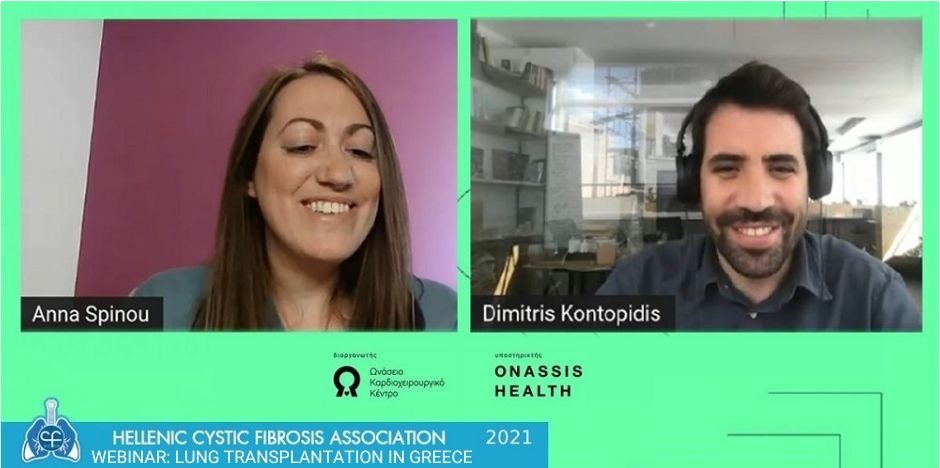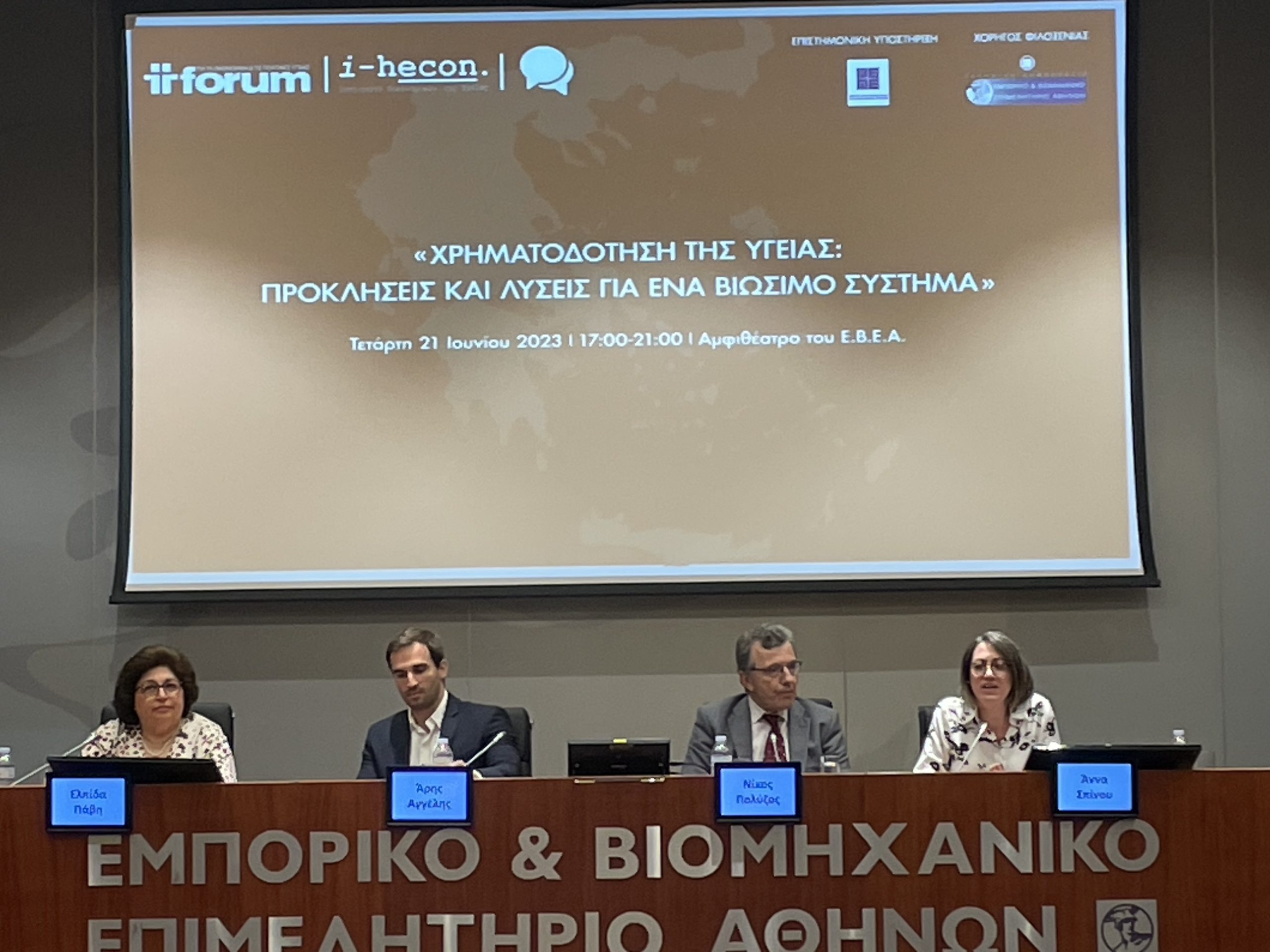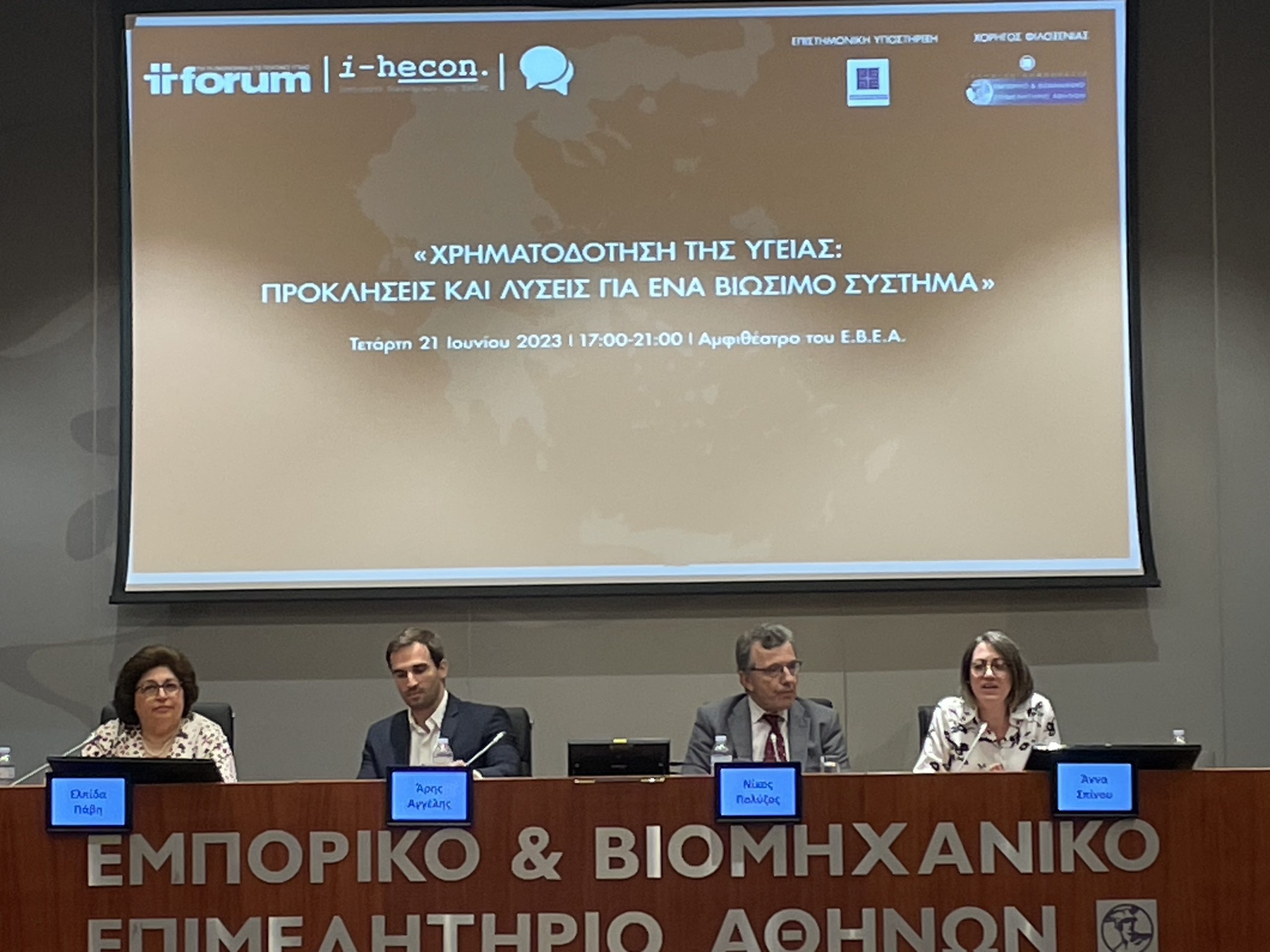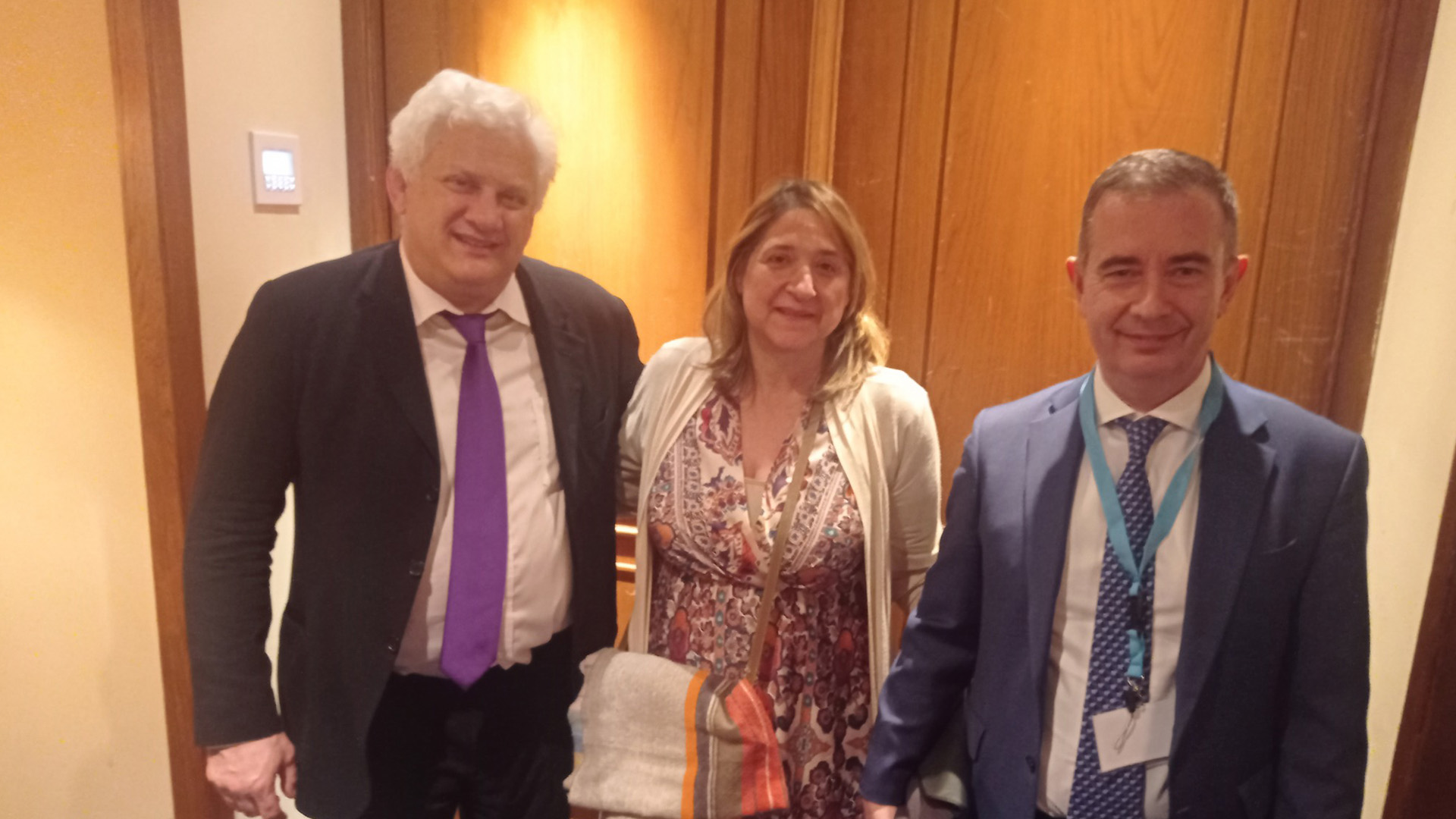20/5/2021
WEBINAR: “Lung transplantation in Greece – The developments in the present and the invitations for the future”
On Wednesday 21/4/2021 the webinar “Lung transplantation in Greece: Developments in the present and challenges in the future” under the scientific auspices of the Onassis Heart Surgery Center and the support of the Onassis Foundation.
The webinar was attended by a number of leading scientists and surgeons from the field of transplantation, including the President of the Onassis Heart Surgery Center Mr. Ioannis Boletis, the President of the Onassis Foundation Mr. Antonis Papadimitriou, the President of the National Transplantation Organization (NTO) Mr. Georgios Papatheodoridis, the President of the Hellenic Lung Society Mr. Mr. Stylianos Loukidis, the President of the President of the Greek Society of Lung Transplantation, Mr. Stylianos Loukidis, the Head of the Clinical Surgery Department of Thoracic Surgery of the AKH Vienna, Mr. Peter Jaksch, the Scientific Manager of the Lung Transplantation Program of the Onassis Heart Surgery Center, Mr. Hercules Tsagaris, the Head of Cardiothoracic Surgery for Heart, Lung and Mechanical Support Transplantation at the Onassis Heart Surgery Center Mr. Themistocles Hamogeorgakis, the Director of Medical Services at the Onassis Heart Surgery Center Mr. Karabinis Andreas, etc.
At the beginning of the webinar, the President of the Hellenic Cystic Fibrosis Association, Anna Spinou, and the Honorary President of the Association and Vice President of CF Europe & Patients’ Association of Greece, Dimitris Kontopidis.
Our representatives spoke about the history of our Association’s concerted actions over the past years to develop lung transplantation for CF patients, about the new National Transplant Centre & National Transplant Action Plan, about access to the new revolutionary treatment that “freezes” the disease after Dimitris Kontopidis’ transplant refusal, and about the positive impact of the successful “Breathe Unlimited – Be a life donor” campaign organized by the Association in support of organ donation.
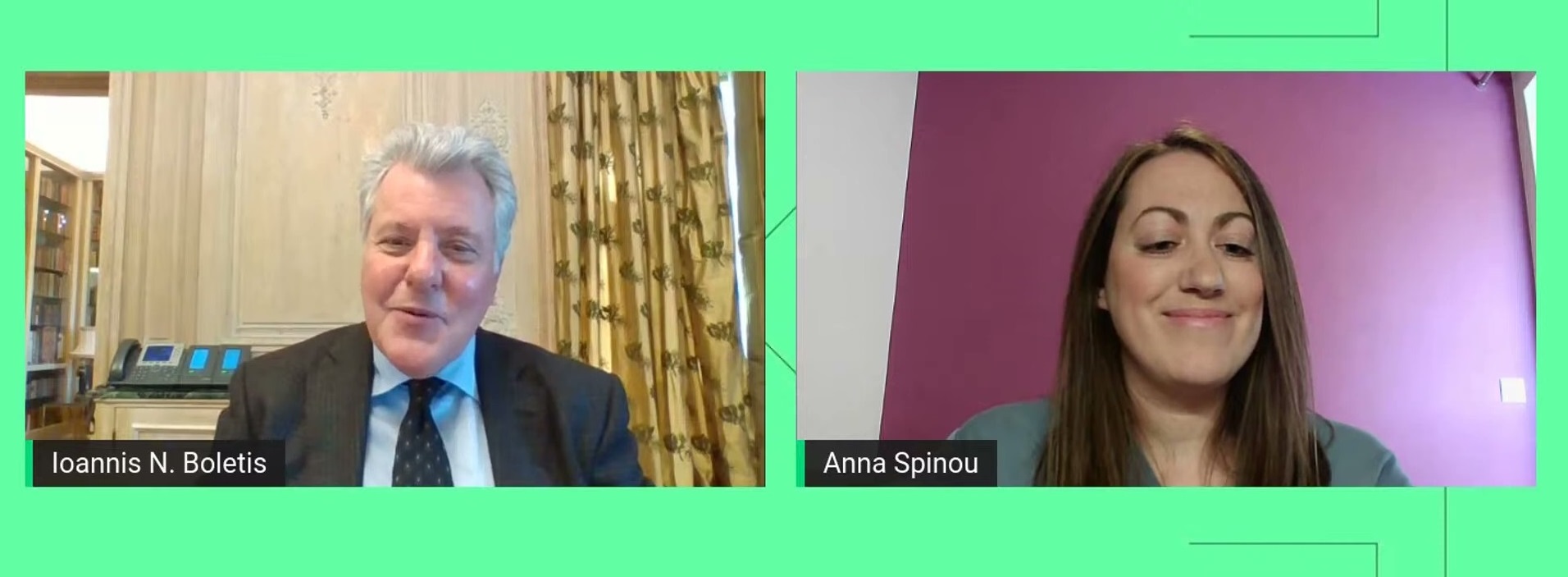

President Anna Spinou, after thanking the President of the Onassis Cardiac Surgery Center Mr. Boleti for the invitation and congratulating the Onassis Cardiovascular Center and the Onassis Foundation for the organization of the webinar, said the following:
“In Cystic Fibrosis the first organ we lose is the lungs. When a patient reaches the final stages of respiratory failure, lung transplantation is the only survival option. Until 2014 in C.F. we were losing about one patient per month at very young ages, 18-25 years old, as we had no lung transplants in our country. In 2014 we visited with the Association the AKH transplantation centre in Vienna, as an informal cooperation had developed at that time between our attending physician at the Sismanoglio, Mr. Inglesos, and the distinguished thoracic surgeon at the AKH, Mr. Klepetko.
So, with the immediate response of the then President of the EOM Mr. Karabinis in 2015, we managed to sign the transnational agreement between Greece and Austria, so that our Greek patients can be transplanted in Vienna.
We also had a first difficulty at the beginning, as we had an advance payment of the transplantation fee from EOPYY. In cooperation with the then President of the EOPYY, Mr Bersimi, we managed to obtain a waiver of the advance payment, so that transplantation was not prohibitive for our patients.
We managed from 2015 to 2019 to transplant an average of 5 of our patients per year.
In 2019, our country’s cooperation with Austria was discontinued and the Greek lung transplant program at the Onassis Hospital was started, as every country has to rely on its own strengths. We know that it takes time to develop the transplants, to find the transplants, to have a comprehensive plan and to develop the programme.
We were particularly pleased when the 1st lung transplant in Greece took place in the summer of 2020, which filled us with great relief. A few months later the coronavirus pandemic appeared in our country.
Given the circumstances, we eagerly await the development of lung transplants in our country, so that all patients who have a respiratory disease and are in the final stage of respiratory failure have the 2nd chance for life.”
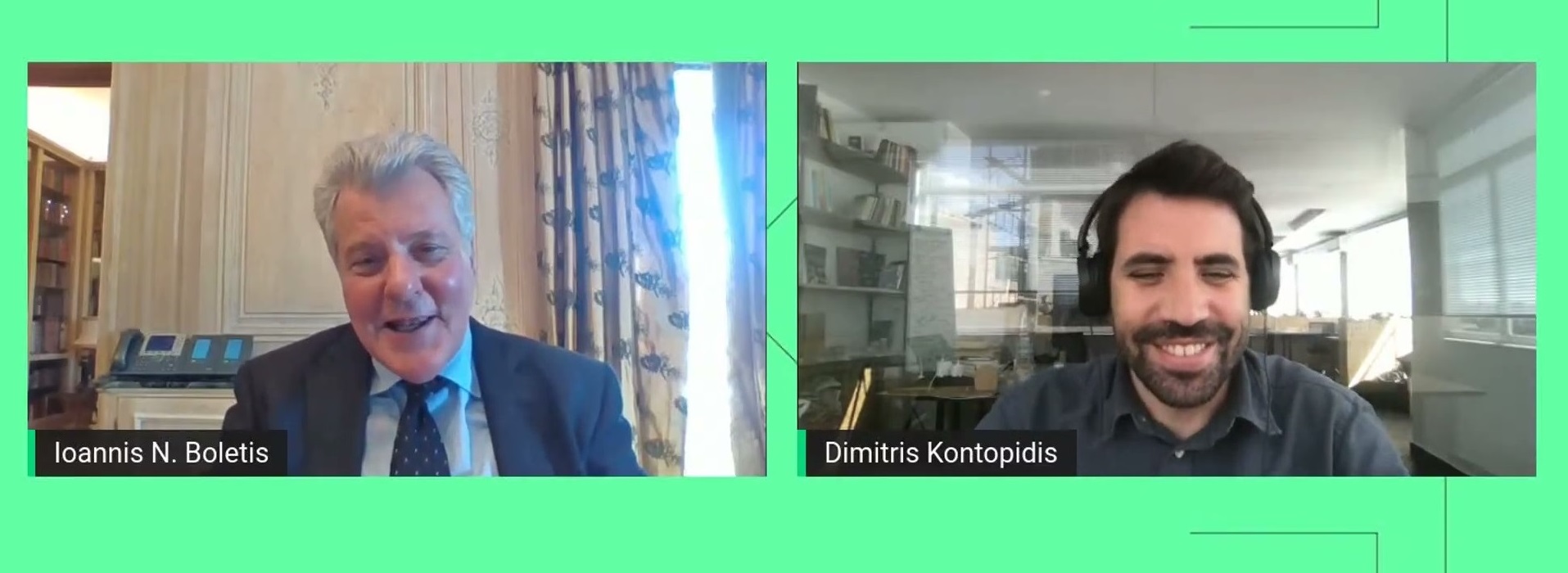

Then the Honorary President Dimitris Kontopidis thanked Mr.Boleti and said the following:
“What unites us today is the fight for all of us to have unlimited breath through lung transplantation. As Anna Spinou has told you, we have made a great effort Cystic Fibrosis patients over the years, since the only survival solution, at least until recently, was lung transplantation. I am also the Vice President of the European CF Agency, so we are also looking at the developments and challenges that exist at the European level. At the same time I am Vice President of the Hellenic Patients’ Association in the umbrella of 55 patient associations participating from different therapeutic categories and we are strong supporters of any effort that is made.
Patients with C.F. were part of the solution as we started in 2014 and we are proud because we feel the national transplant program and our own “child”. We are grateful to the Onassis Foundation for funding the training of Greek doctors and certainly with the complete building infrastructure that is being prepared and the new National Transplant Center will be ready, we feel quite safe and grateful for the technical infrastructure, staff and training. In addition to the lung transplants that will take place in the new National Transplant Centre, it is very important that all the pre-transplant and post-transplant procedures are in place so that the experience and expertise can be accumulated to build this centre of excellence, because we want the best possible outcome in something as crucial as our lives.
We look forward to the National Transplant Action Plan. In it we would like to see the strengthening of the role of the EMA, as well as the coordination of the ICUs, since that is where it all starts with potential donors. We would certainly like to have transparency, so that all citizens know what the transplant procedures are, so that there is no fear, but also to involve them and more directly to become supporters with organ donation. We would also like to see the evaluation of hospitals, because as you know we have very small hospitals which offer a lot of organs, while there are large hospitals in Attica which do not offer any. So it is an indicator that would show how effective a hospital is in contributing organs. Certainly informing society is within the framework that we wanted to be involved and support and of course in this chain of life the link of the patients cannot be missing in cooperation with the scientific committee and all the bodies involved.
Anna said earlier a key point, important and I think we are in a very good phase at the moment. In 2019 the Austrian programme was discontinued, as was natural because every country has to have its own efforts, and we had the happy start of the national transplant programme. At that time I have to say publicly that I had to refuse my transplant, as I was the last on the Austrian list and my fellow patients did not have the same opportunity here, as it takes time for the transplants to grow. We had done it then for 2 reasons. At the press conference at the time I was holding the medicine in one hand, because we wanted access to the treatment that would prolong the time we would unfortunately need a lung transplant. But in the other hand I was holding the EOM card, because we needed an immediate start of the transplant programme and we are glad that it has started and we now have lung transplants in Greece and we are following them closely. What we achieved at the time with this transplant denial was to save patients in end-stage respiratory failure, but our goal is to provide that “safety parachute”, the transplant, for every patient without having to go into a dilemma and feeling the anxiety that they might be last on the list and there are no transplants.
Along with this there was the pandemic. So we all understand that whatever plan you have, there are constant challenges that we have to be united, strong and reflexive to deal with. The truth is that because we have patients waiting for transplants, our friends that we’ve grown up with, we’ve had a lot of anxiety about this. We took the lead within covid-19 and ran a campaign under the auspices of the National Transplantation Agency. We tried to capture the story of our Lena, an 18-year-old patient who has been transplanted in Austria, to incorporate her through the mural at the Nice Hospital, since that is the centre where many transplants can be found. Through the TV spot and an online challenge we did, we managed to make a positive impression. The indirect effect of a campaign can often be seen a long time later, as the mural is seen every day by visitors to a hospital or the spotlight. The most direct effect was that the President of the Republic was one of the first people to become ambassadors of the campaign. Health leaders, parliamentarians, the executives of the Onassis Foundation, the Onassis Foundation, the OCF and you, Mr. Boleti, participated and we thank you for that. Through the 5,500 visits to the page we achieved something promising. In December we had 324 new organ donor registrations and in January 307, when on average in the other months of the year we had 100, 150, 180. We managed through an online campaign, where all you had to do was click, to double and triple the donors per month.
In this multi-factor chain of life, there is certainly no one left over and patients are part of the solution. But citizens are also part of the solution, as covid-19 has shown us that we are more vulnerable than we thought. The ventilator came as an image much closer to the average citizen who thought they might not have a health problem, and what we have always talked about is now coming to light. That the likelihood of needing a transplant is much greater than having to give one. Transplantation is something that affects us all and we as patients who have lived through it and it is our constant anxiety will be strong supporters of this effort. Thank you very much for the opportunity, we are following the efforts with excitement and we stand with you.”
Here you can watch the video with the speeches of the representatives of our Association.
To watch the whole webinar click here.

